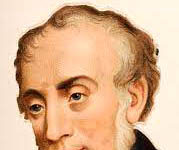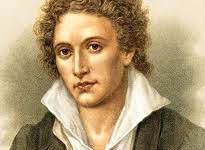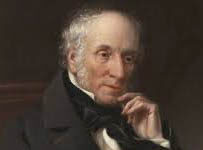Origin and Evolution of Literature
Origin and Evolution of Literature
Origin and Evolution of Literature
Literature, that mesmerizing tapestry woven intricately throughout the epochs of human existence, has played an indispensable and profound role in shaping the very essence of human civilization. From its humble origins to its multifaceted evolution, literature has stood as a remarkable reflection of society’s collective dreams, aspirations, fears, and values. Much like a timeless symphony resonating across the corridors of time, it has embraced an array of genres, styles, and themes that have not only entertained but also educated and illuminated generations, making literature an indispensable part of our shared human heritage. There are some indistinct stages or periods of the origin and evolution of literature in human society. They may be discussed as follows:
Prehistoric Oral Traditions: In the earliest epochs of humanity, prior to the dawn of written language, literature thrived through the captivating medium of oral traditions. Imagine, if you will, the fire-lit circles of ancient gatherings, where stories were told with a sense of awe, their words like shimmering stars illuminating the dark canvas of the night sky. These oral narratives served as the earliest vehicles of knowledge transmission, an intangible inheritance passed from one generation to the next. They were akin to the soft whispers of the wind, uniting communities by weaving tales of heroes, myths, and lessons. A poignant example of this is the Mesopotamian epic “The Epic of Gilgamesh,” where the hero’s journey and the moral dilemmas he faces encapsulate the very essence of human existence, echoing through the ages.
Birth of Written Language: The advent of written language heralded a transformative juncture in the evolution of literature. With the emergence of scripts and symbols, humanity’s stories and wisdom could be preserved and disseminated far beyond the confines of the spoken word. Imagine ancient scribes etching their thoughts onto scrolls of papyrus or clay tablets, each stroke of the stylus etching humanity’s thoughts into the annals of history. The intricacies of Egyptian hieroglyphics and the structured elegance of Sumerian cuneiform script painted a vivid tableau of humanity’s yearning to communicate across time and space. An exemplar of this enduring achievement is the “Kesh Temple Hymn,” a Sumerian literary treasure that reverberates with devotion to the divine.
Cultural Epics and Religious Texts: As civilizations flourished and evolved, literature began to intertwine itself with the rich tapestry of culture, religion, and myth. Picture the great bards of ancient Greece, their voices resonating across amphitheaters, as they recited epic poems like “The Iliad” and “The Odyssey.” These tales encapsulated the heroic sagas of a bygone era, while simultaneously embedding moral lessons and cultural values within their verses. Religious texts, be they the Bible, the Quran, or the Bhagavad Gita, transcended mere spiritual guidance, presenting profound insights into societal norms, ethical frameworks, and the very essence of human existence. Like rivers of wisdom cascading through diverse cultures, these texts sculpted belief systems, instilled values, and guided generations.
Renaissance of Knowledge: The Renaissance era emerged as a luminous beacon of enlightenment, akin to a garden blossoming after the prolonged slumber of medieval obscurity. The revolutionary invention of the printing press by Johannes Gutenberg breathed life into literature, turning it into a beacon of knowledge accessible to the masses. Imagine the rapid dissemination of ideas through the printed word, as books like Dante’s “Divine Comedy” and Shakespeare’s plays found their way into homes and hearts. This transformation was akin to a cacophony of birdsong at dawn, signaling the awakening of minds and cultural resurgence.
Enlightenment and Social Commentary: The Enlightenment era ushered literature into the realm of critical thinking and social discourse. Picture the pens of enlightened thinkers scratching away at the parchment, crafting essays, novels, and pamphlets that challenged prevailing norms and championed the supremacy of reason. Voltaire’s “Candide” was more than a narrative; it was a mirror reflecting the absurdities of the world, fostering a quest for truth. Rousseau’s “The Social Contract” sowed the seeds of societal transformation, fostering reflections on democracy and individual rights. These works were akin to lanterns illuminating the path toward societal progress, sparking revolutions and forever altering the trajectory of political thought.
Diverse Genres and Globalization: As the tendrils of human interaction extended across borders, literature began to evolve like a chameleon adapting to diverse environments. The 19th-century Romantic movement, much like a blooming garden in spring, brought forth works like Mary Shelley’s “Frankenstein.” This novel, blending science and morality, raised poignant questions about the ethical implications of unchecked scientific advancement. The global reach of literature became evident in works such as Gabriel Garcia Marquez’s “One Hundred Years of Solitude.” Its magical realism, akin to a brush painting on a canvas, intertwined the fantastical with the ordinary, reflecting the rich tapestry of Latin American culture.
Modernism and Beyond: The 20th century unfurled as an era of literary Modernism, akin to a mosaic composed of shattered reflections. Writers like James Joyce dared to challenge conventional narrative structures in works such as “Ulysses,” while poets like T.S. Eliot in “The Waste Land” evoked a sense of fragmented existence. This period marked literature’s expedition into uncharted territories, delving into the psyche and capturing the very essence of a rapidly transforming world. It was a symphony of dissonance and innovation, much like a painting that defies traditional boundaries.
Digital Age and the Future: In our current digital epoch, literature stands on the precipice of yet another metamorphosis, akin to a butterfly emerging from its chrysalis. E-books, blogs, and online platforms have opened up new vistas of authorship and readership, redefining the way we engage with narratives. Interactive storytelling, like a captivating dance, invites readers to actively participate in shaping the course of a narrative. As literature navigates this digital terrain, it remains a resilient force, constantly adapting to the changing winds of technology, yet retaining its core essence as a medium for transmitting ideas, emotions, and experiences across time and space.
From its primordial origins to its digital frontiers, literature has been an indomitable force in the journey of human civilization. It has evolved like a river carving its path through the landscape, a river that has nourished minds, inspired souls, and illuminated the path forward. Literature’s evolution stands as a testament to humanity’s growth, challenges, and aspirations, an ever-evolving mirror reflecting our shared human experience. Much like a kaleidoscope, it captures the myriad hues and facets of life, refracted through the prism of human imagination and expression. It is a symphony, a painting, a dance, a river—a perpetual reminder of the enduring power of words, stories, and ideas to transcend time and leave an indelible mark on the canvas of human history. 0 0 0. Origin and Evolution of Literature
Origin and Evolution of Literature
N.B. The article ‘Origin and Evolution of Literature’ originally belongs to the book ‘The Origin Evolution & Functions of Literature‘ by Menonim Menonimus. Origin and Evolution of Literature
Books of Literary Criticism by M. Menonimus:
- World Short Story Criticism
- World Poetry Criticism
- World Drama Criticism
- World Novel Criticism
- World Essay Criticism
- Indian English Poetry Criticism
- Indian English Poets and Poetry Chief Features
- Emily Dickinson’s Poetry-A Thematic Study
- Walt Whitman’s Poetry-A Thematic Study
- Critical Essays on English Poetry
- Tawfiq al-Hakim’s Novel: Return of the Spirit-An Analytical Study
- Tawfiq al-Hakim’s Novel: ‘Yawmiyyat Naib Fil Arayaf’-An Analytical Study
- Analytical Studies of Some Arabic Short Stories
- A Brief History of Arabic Literature: Pre-Islamic Period (500 AD-622 AD)
- A Brief History of Arabic Literature: Early Islamic Period (622 AD-661 AD)
- Reviews on William Shakespeare’s Works
- Reviews of Charles Dickens’ Works
- Reviews of John Milton’s Literary Works
- Reviews of Some Iconic Travelogues
- Shakespeare’s Sonnets-Critical Studies
- Analytical Studies of Selected Poems of Sarojini Naidu
- Analytical Studies of Selected Poems of Rabindranath Tagore
- Analytical Studies of Selected Indian English Poems
- Reviews of Selected Motivational Books
- Origin Evolution & Functions of Literature …
Additional Searches::
- The Functions of Literature
- Evolutionary Literary Study
- Functions of Literature
- Principles of Literature
- Literary Theory
- Origin and Development of Literature
- Literature











